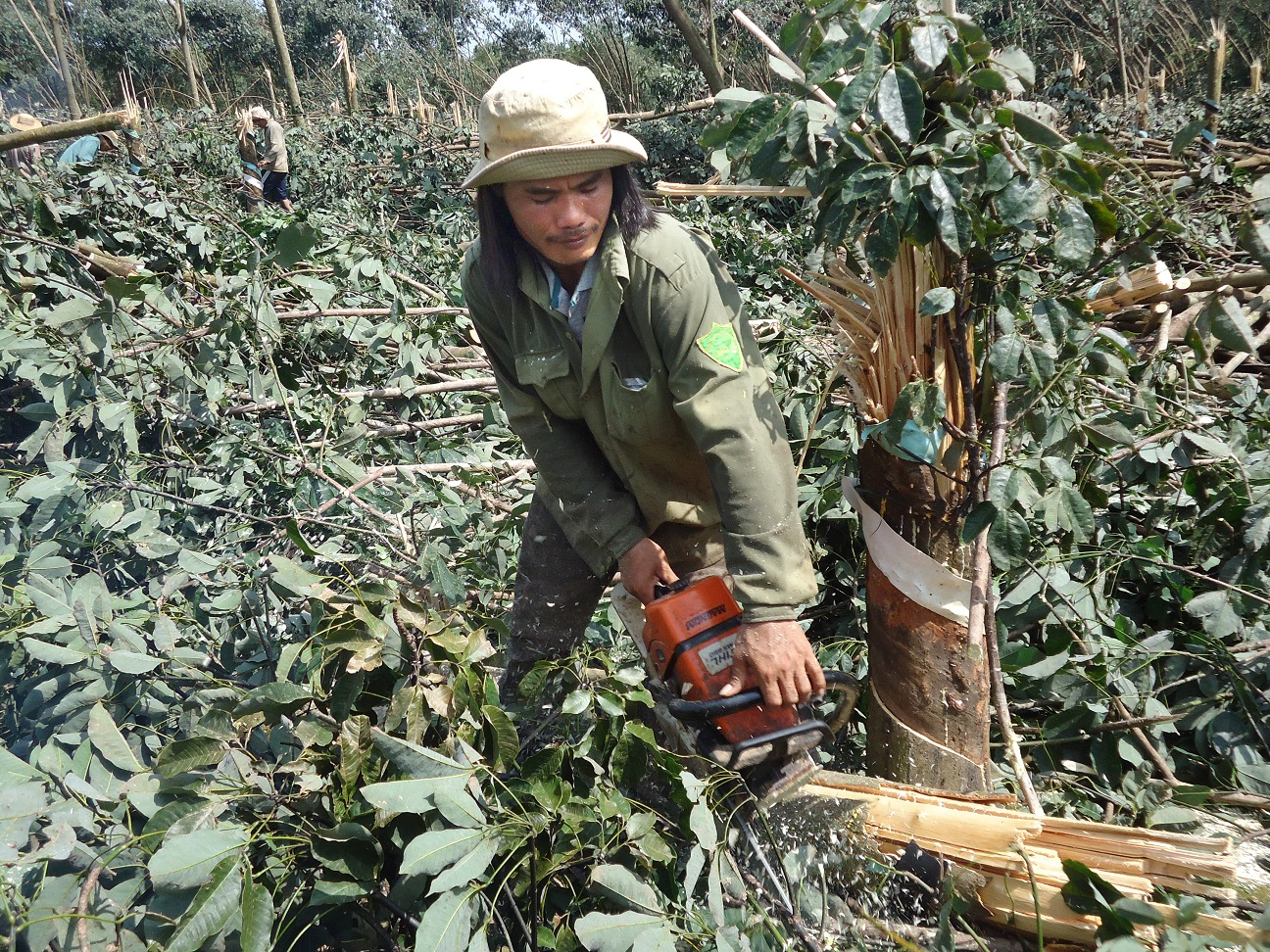With rubber prices falling to extremely low levels from the peak in 2011, all players of the Vietnamese rubber sector, from farmers to latex processors and exporters, are struggling to escape from the hardship in their own ways.
Farmers are chopping down their rubber trees to switch to growing other crops, whereas businesses are laying off employees and cut production, as export prices have slumped nearly 70 percent for the past five years.
In 2011 a metric ton of rubber was exported at US$5,000, while the rate in September this year was only $1,580, according to the Vietnamese Ministry of Agriculture and Rural Development.
For rubber growers, natural latex prices are also so low that they will only incur losses.
“The money earned from selling the latex is not enough to cover labor and fertilizer costs,” Le Minh Tung, who runs a rubber plantation in the southern province of Binh Phuoc, told Tuoi Tre (Youth) newspaper.
Even though it is now the harvest time for rubber latex, Tung has left his crop untended. So have many other farmers in the province.
A neighbor of his, who prefers to be known only as L., has completely cleared his rubber plantation and is ready to grow cassava there.
Vu Van Buong, another Binh Phuoc farmer, has also felled 12 hectares of 12-year-old rubber crops to switch to planting cashew trees.
Binh Phuoc is known as a hub of rubber trees in southern Vietnam. But more than 1,800 hectares of the rubber crops in the province have been destroyed, as growers switch to other plants, according to the provincial agriculture department.
Local residents jostled to switch from other plants to grow rubber when export price peaked in 2011, only to generate excessive supply, which thus triggered a price decline in 2013.
Another reason for the rubber price collapse is slowing demand, particularly from China, the world’s largest consumer of natural rubber, according to the ASEAN Rubber Business Council (ARBC).
“Other factors include the continued economic uncertainties prevailing in the eurozone and other parts of the world as well as the plunging crude oil prices and their impact on commodities such as rubber,” the council said in a press release on September 10.
ARBC comprises the rubber trade associations of Thailand, Indonesia, Malaysia, Singapore, Vietnam and Cambodia, collectively accounting for around 76.2 percent of the world’s total natural rubber production.
The grouping said it is very concerned about the current protracted low rubber prices, as there is a possibility that “many more smallholders will stop tapping and abandon their rubber holdings for other more lucrative activities.”
“This will then disrupt the supply of raw materials required by the rubber product manufacturers for their operations,” it warned.
The persistently low rubber prices have adversely affected the livelihood of the smallholders, in particular, those who are largely dependent on rubber as their source of income.
With inflation and a higher cost of living, it has become increasingly difficult for them to earn a decent living.
The situation in Binh Phuoc is a fair reflection of what the ARBC is concerned about.
Like us on Facebook or follow us on Twitter to get the latest news about Vietnam!






















































